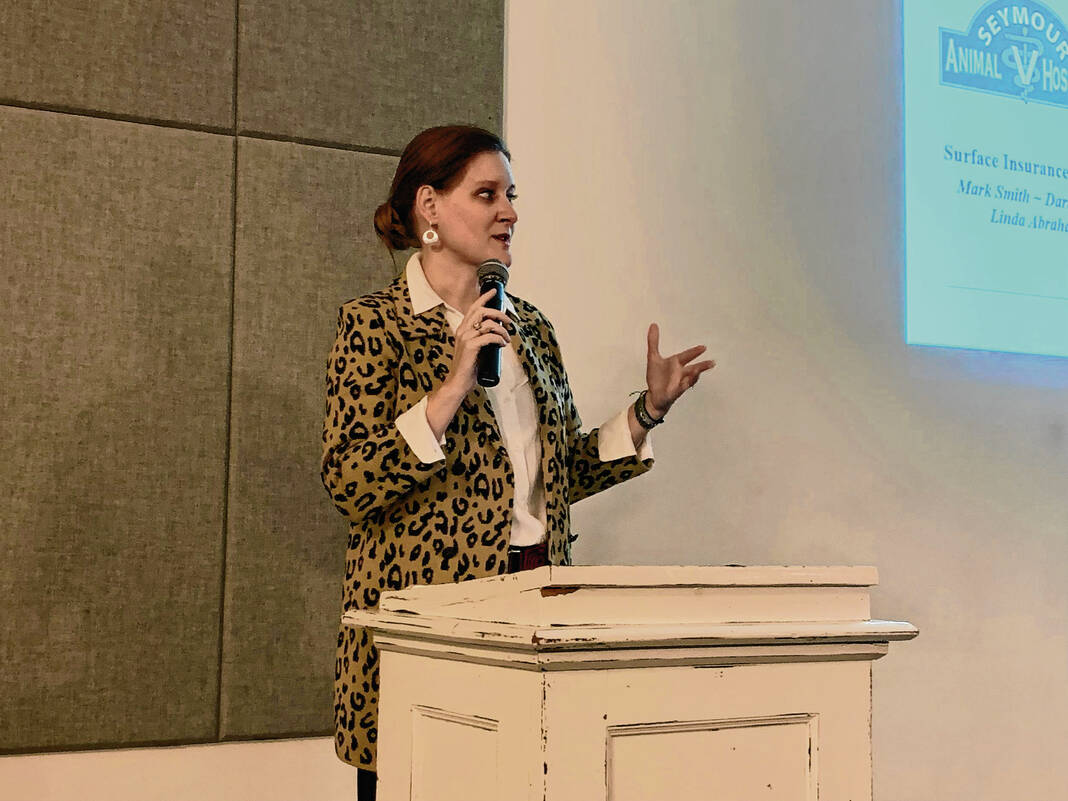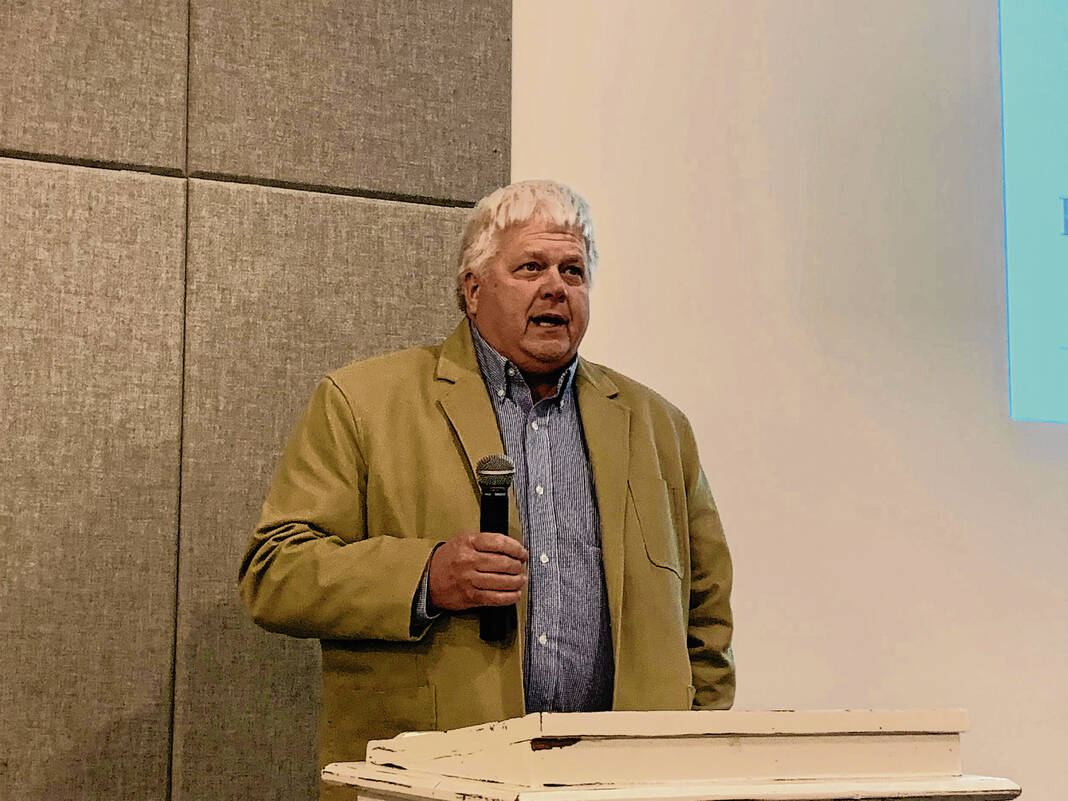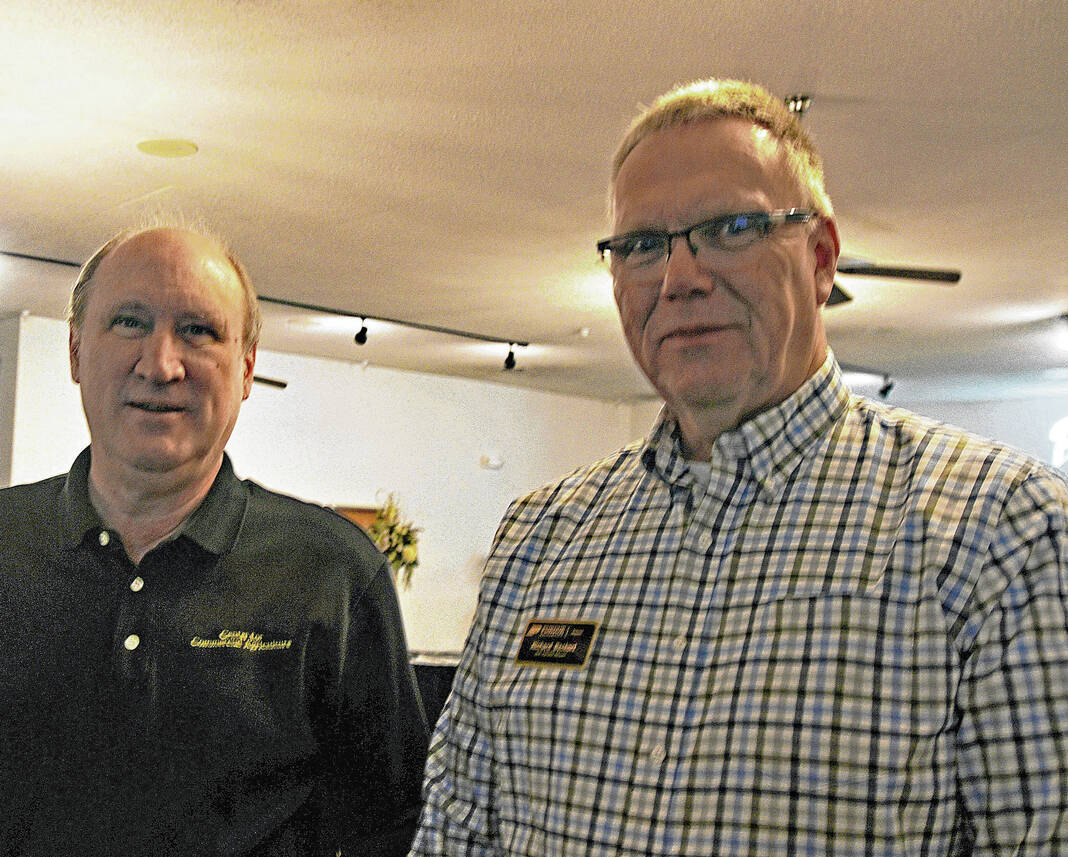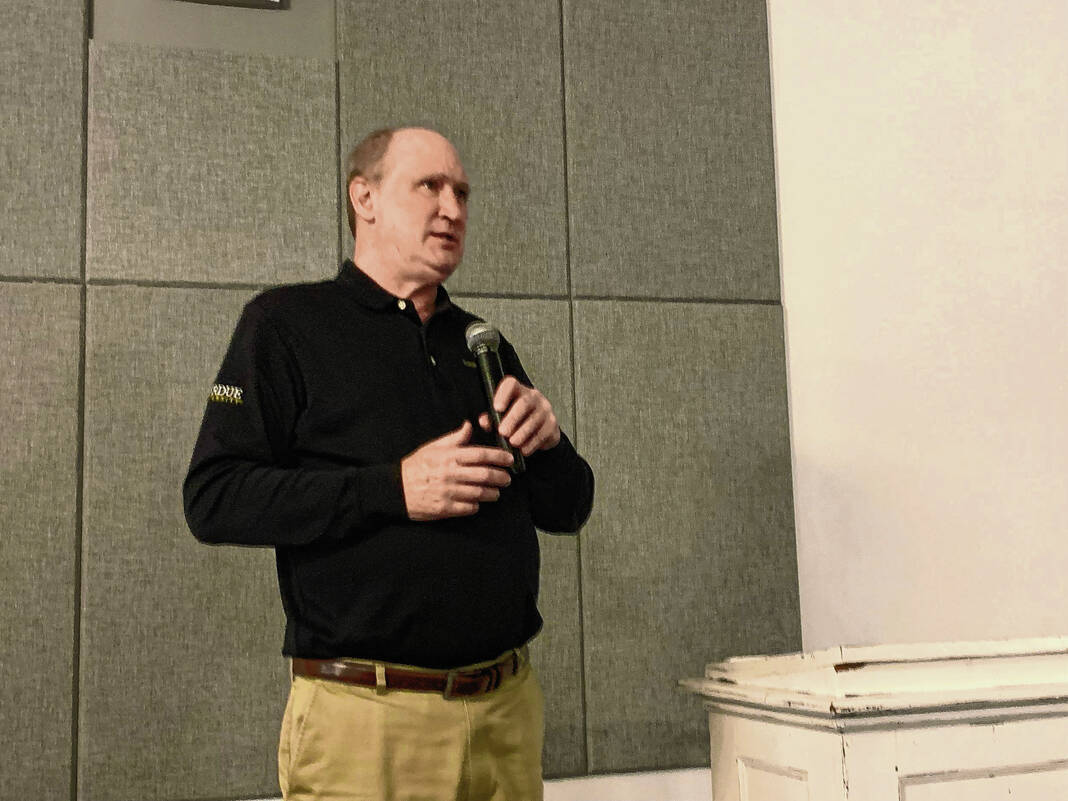BROWNSTOWN — The Community Foundation of Jackson County held a special briefing and breakfast Wednesday for the Jackson County agricultural community.
Purdue University Cooperative Extension Service and Premier Companies joined with the foundation in organizing the 20th annual event at Pewter Hall in Brownstown.
Pastor Stephen Wood from St. Paul Lutheran Church in Seymour gave the opening prayer before breakfast was served.
Afterwards, Donald Schnitker, a member of the foundation’s board, shared how farmers can give back to the community and the foundation through their crop harvest. The Gift of Grain program gives local farmers the opportunity to donate a certain number of bushels from their crop harvest to the foundation.
When a farmer delivers their grain to an elevator, it will credit the value of that grain to an account of the community foundation and can be used to start an endowment fund, support a specific nonprofit or support overall charitable causes in the area.
When farmers gift their grain to the foundation, they benefit by the avoidance of declaring the sale of the grain as part of their income. This can help in deducting the cost of growing the crops, which typically is saving self-employment tax, federal income tax and state income tax.
Schnitker said the foundation has more than 200 funds to which donations can be made, and in 2022, 11 new funds were established. The funds are separated into different categories, such as unrestricted endowments, designated endowments, donor-advised funds, Community Foundation Support Funds, field of interest funds and scholarship funds.
“In 2022, there was a little over $932,000 in gift given to the foundation and $899,000 distributed out. I can’t emphasize enough how much these dollars given by people just like you impact the many organizations within our county,” Schnitker said.
In 2022, the Gift of Grain program received $9,874 from seven donors in the form of corn, soybeans and one cash donation. These donations came from residents of Redding and Hamilton townships and were directed to four funds within the community foundation.
“As a farmer and lifelong resident of Jackson County, I am asking and challenging you to share your blessings and make a donation to the Gift of Grain to help improve the very community we live in. The next time we haul grain to one of our local elevators, donate some bushels to the community foundation of Jackson County. It’s just that easy,” Schnitker said.
The community foundation then welcomed Susan Bevers, an attorney at Lorenzo Bevers Braman and Connell in Seymour and also a member of the board of directors for Schneck Medical Center. She primarily focused on estate planning and estate administration, but during her speech, she also discussed the importance of health care and what is known as advance directives.
An advance directive is a document that gives people an indication of what the individual’s wishes are at the end of their life.
“It’s important because we want to make sure we name someone who can make those health care decisions for us but also have a conversation about what your wishes are. It is a vital part of your estate planning process,” Bevers said.
The keynote speaker was Michael Langemeier, an agriculture economist and professor at Purdue University who shared what agriculture could look like in the future.
He gave an in-depth brief about where crop prices are going and shared the results of a survey taken showing the optimism and pessimism that U.S. producers have in relation to production agriculture.
Langemeier took the thoughts of the farmers who took the survey and created a word cloud showing the common thoughts and concerns of farmers. This word cloud included words like energy, inputs, interest, politics, weather and stability.
Overall, Langemeier discussed the higher input costs and how they will affect the prices of corn and soybeans in the future years, showing there could be a decrease in price and rising inflation. However, in the future Langemeier sees optimism in the rising value of farmland.




